 Stress seems to be a way of life for a lot of people. It’s almost a badge of honor. This isn’t helped by the current focus on goals and the importance of constantly striving for better. Striving for goals is a good way to improve your life, but there’s a dark side to this focus as well. If you’re constantly pushing yourself, then you could be delaying or avoiding the things that make you feel happy and relaxed. These types of activities are essential for self-care, and if you’re not doing them, then you’re probably creating self-induced stress. This issue is one that’s strongly implicated in poor overall health and in the development of stress-related conditions.
Stress seems to be a way of life for a lot of people. It’s almost a badge of honor. This isn’t helped by the current focus on goals and the importance of constantly striving for better. Striving for goals is a good way to improve your life, but there’s a dark side to this focus as well. If you’re constantly pushing yourself, then you could be delaying or avoiding the things that make you feel happy and relaxed. These types of activities are essential for self-care, and if you’re not doing them, then you’re probably creating self-induced stress. This issue is one that’s strongly implicated in poor overall health and in the development of stress-related conditions.
To be successful at work, in relationships, and in life, you need to set goals and push yourself to achieve them. But, as with most things in life, there must be a balance between this and more nurturing activities. Unfortunately, when people are driven, healthier life choices tend to drop away, and the following bad habits can appear:
Lots of people live and work online, and this can be very damaging to your health. It increases your risk of heart conditions, high blood pressure, obesity, high cholesterol, and diabetes. In fact, studies have found that people who sit all day increase their risk of dying so it’s almost equal to that of smokers and the obese.
When you’re busy and tired, the last thing you want to do is cook, and many people turn to processed, fast foods. These foods are high in sugars, fats, and chemicals, and are low in nutrients. This type of diet leads to weight gain, health problems, and vitamin or mineral deficiencies, which are very hard on the body. A healthy diet is essential for your mental, physical and emotional health, and straying from this path is a common cause of self-induced stress.
Your life is precious, so choose to be happy now. Telling yourself that you’ll be happy when you achieve a certain goal is a trap. Too often, this will become a habit of unhappiness. You’ll be unhappy in the goal pursuit, and unable to feel happy in the achievement. This can be very damaging for your health and worsens self-induced stress.
Play is as essential for adults as it is for children. It’s relaxing. It boosts your imagination, helps you build relationships, and improves your emotional well-being. It’s also one of the best ways to reduce stress, improve your brain function, and keep you feeling young.
When you live this kind of lifestyle, it probably won’t change when you achieve the goals you’re working towards. Once you achieve your goals, you’ll probably feel too depleted to celebrate and enjoy it. This type of self-induced stress can leave you feeling constantly unhappy, snappy, and self-critical, and will damage your health.
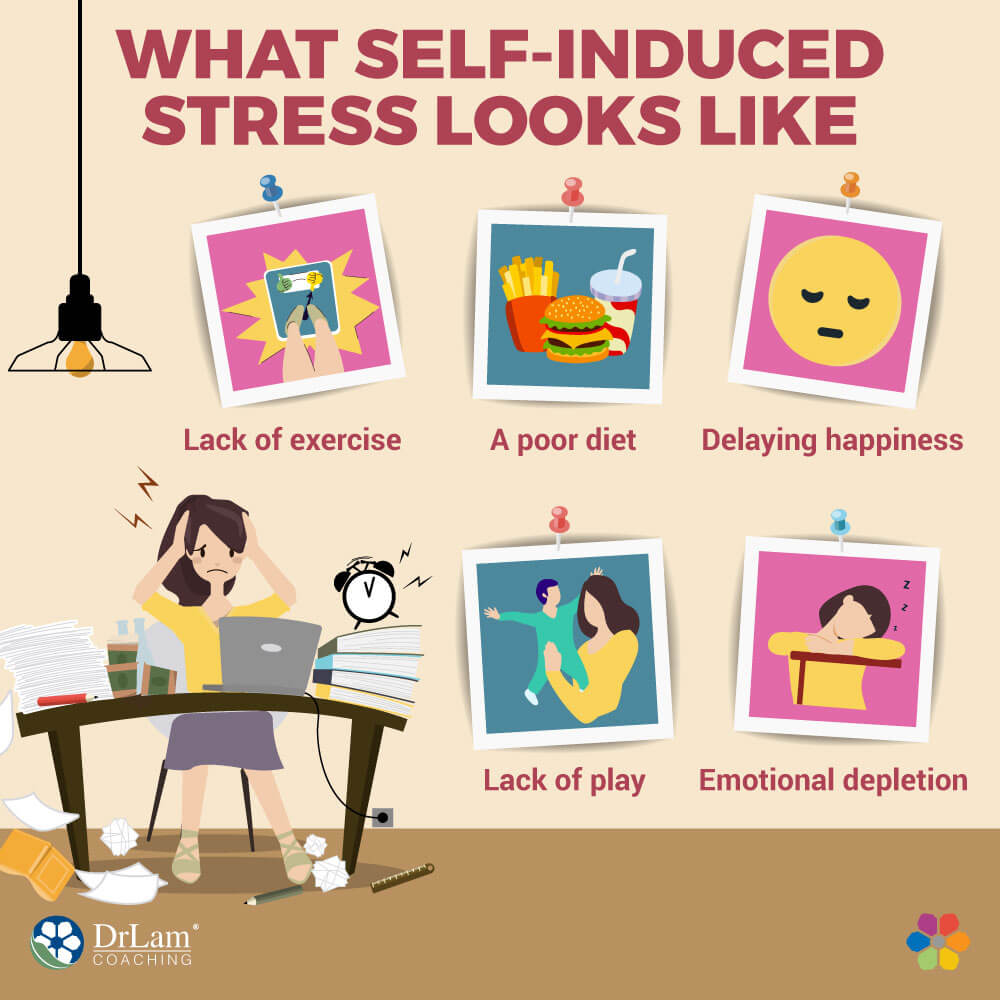
If you’re wondering whether you’re a victim of self-induced stress, then there are several key signs you need to look out for. These include:
 Ongoing Unhappiness. Moods change from day to day and even moment to moment. The idea that you should be happy all the time is ridiculous. But if you can’t remember the last time you felt happy or laughed, then it’s a clear sign that something’s wrong.
Ongoing Unhappiness. Moods change from day to day and even moment to moment. The idea that you should be happy all the time is ridiculous. But if you can’t remember the last time you felt happy or laughed, then it’s a clear sign that something’s wrong.Living like this is unhealthy, and it’s unsustainable too. Sooner or later there will be consequences for this level of self-induced stress, and they won’t be pleasant.
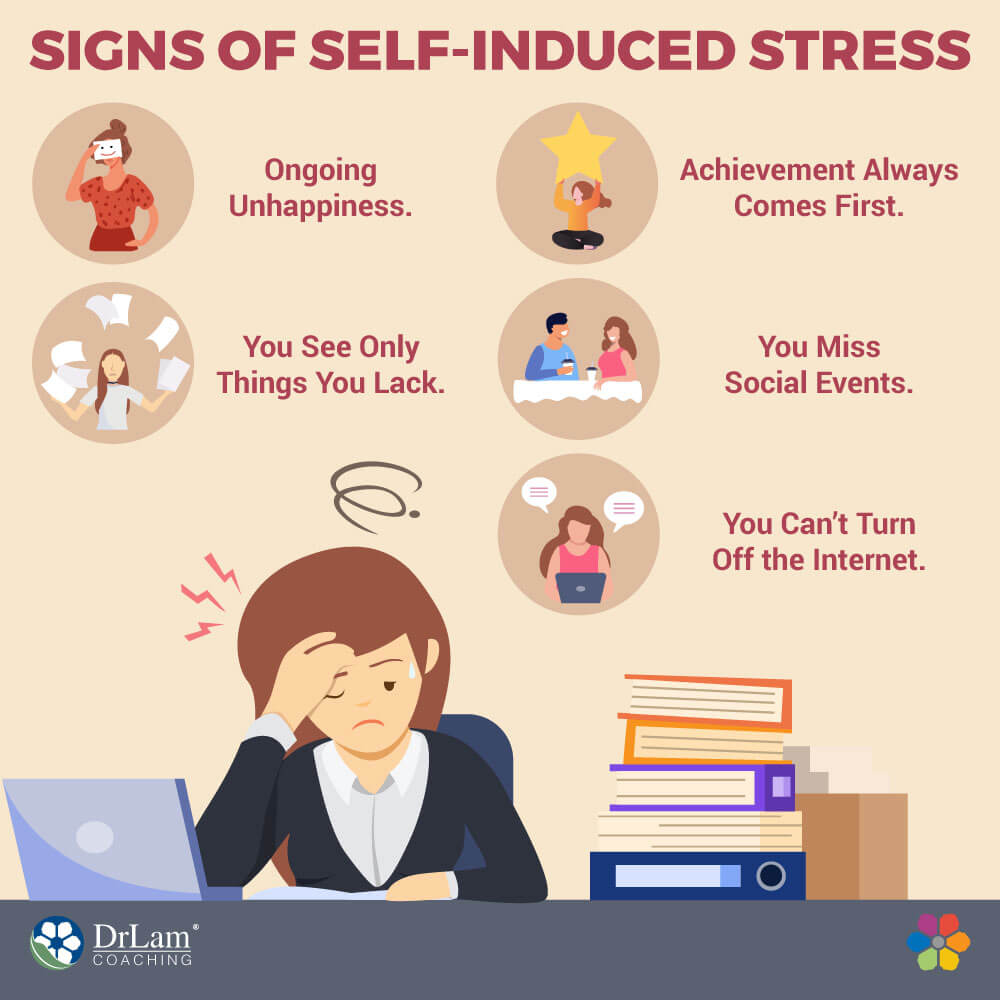
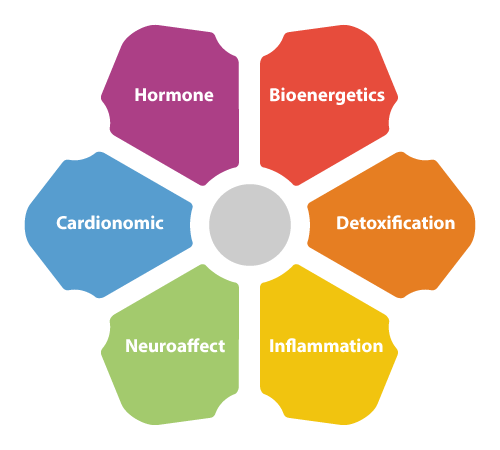 One of the potential consequences of self-induced stress is adrenal fatigue. The body is designed to deal with a certain amount of stress. This amount is highly individual and varies from person to person. It’s determined by the strength and the resilience of the NeuroEndoMetabolic (NEM) Stress Response, which is the body’s first response to stress. This system activates the adrenal glands so that the body receives the cortisol it needs to cope with high-stress situations.
One of the potential consequences of self-induced stress is adrenal fatigue. The body is designed to deal with a certain amount of stress. This amount is highly individual and varies from person to person. It’s determined by the strength and the resilience of the NeuroEndoMetabolic (NEM) Stress Response, which is the body’s first response to stress. This system activates the adrenal glands so that the body receives the cortisol it needs to cope with high-stress situations.
The problem comes when you reach your individual stress limit. Some people can tolerate high levels of stress for years without any problems. Others will find that their health suffers after a short period of stress. This issue is highly individual and based on a variety of factors in your body. But whether you have a high stress tolerance or a low one, your body still can’t cope with high stress levels indefinitely. When stress becomes chronic and seems endless, the NEM stress response becomes overworked. This causes adrenal fatigue and the condition of the adrenals start to deteriorate. Unfortunately, nothing in your body is an isolated system, so when the adrenals start to malfunction it will cause problems in every system, organ, and circuit in your body. And this can be very difficult to reverse.
Recovering from serious stress can be a long and laborious process. Treating the surface symptoms isn’t enough; instead, you need to address the deeper causes and imbalances and give your body what it needs to heal and re-balance itself. The human body is a remarkable machine, and given the right circumstances, it can return itself to health even when that seems impossible.
But the most important step you must take when you’re working on adrenal fatigue recovery is to reduce your stress levels. Trying to heal the damage while you’re still experiencing chronic stress is ineffective at best. Instead, you need to find and honestly evaluate the causes of stress in your life, whether they be your diet, your lifestyle, or even the people in your life. And then you need to do what you can to reduce or eliminate these stressors.
Another essential step is to take the time to adopt stress relieving activities such as yoga, meditation, or gentle exercise that will actively reduce your stress levels. But these activities will only be helpful if you find a way to break the habit of self-induced stress.
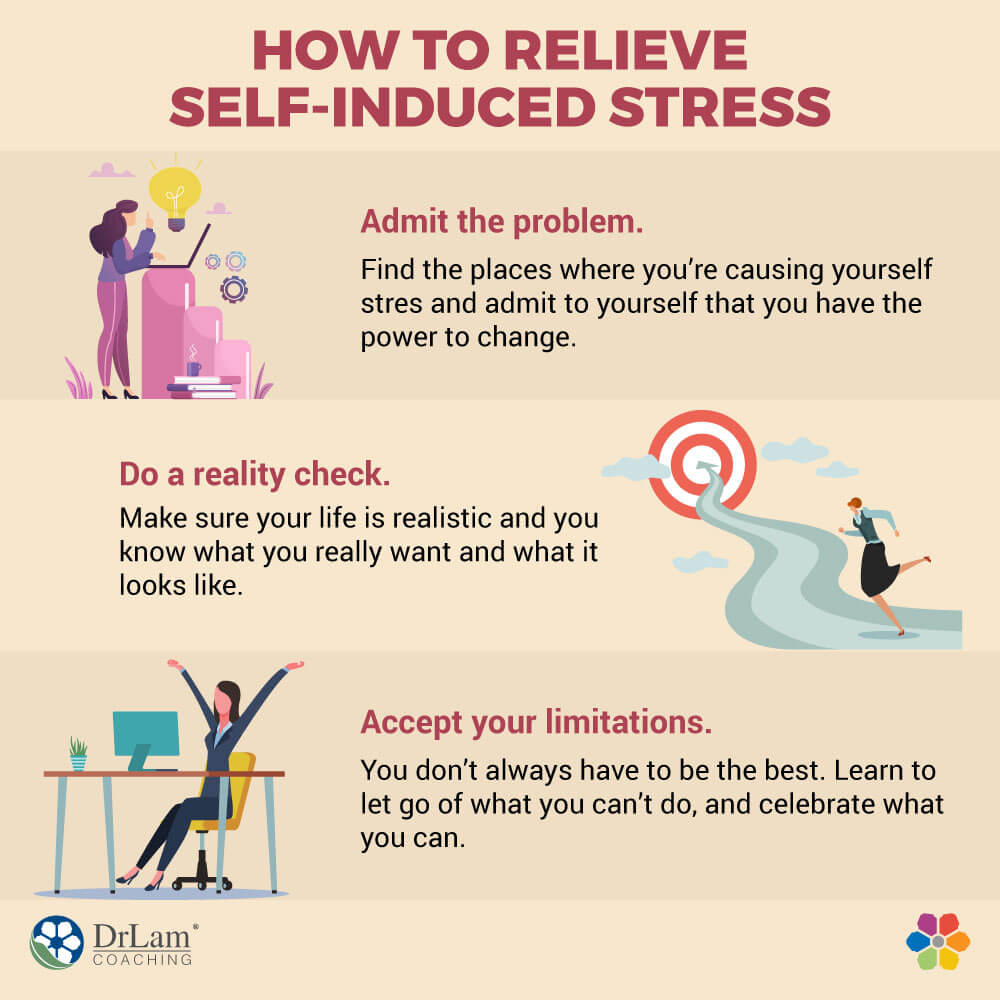
The one good thing about self-induced stress is that you have some measure of control over it. When you’re honest with yourself and admit that you’re causing a lot of your own stress, you can do something to change your mindset. You can take control of your life. Constantly pushing yourself and being under a lot of stress isn’t your only choice. And it isn’t the best choice if you want to live a long, happy, and healthy life.
Here’s how to break the habit of self-induced stress:
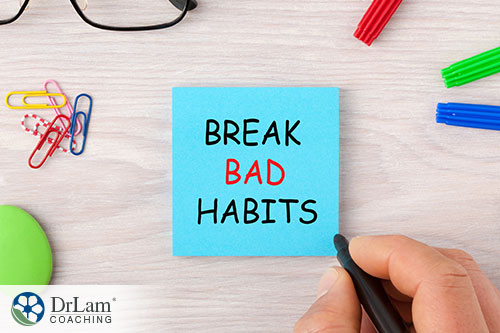
If you live a busy, stressful life, then you might think that this level of stress is essential for success. Self-induced stress, brought on by ambition and your desire to improve your life, is one of the biggest problems in the modern world. It will impact your quality of life and could even damage your health over the long-term. This is what happens when you have adrenal fatigue, and it is why you need to learn better ways to cope with stress before your body forces you to do it.
© Copyright 2020 Michael Lam, M.D. All Rights Reserved.
Self-induced stress is just as dangerous as any other kind of stress and can lead to long term health problems. Unfortunately, this type of stress can be hard to spot because you probably don’t want to admit that you’re making your own life harder than it needs to be.
